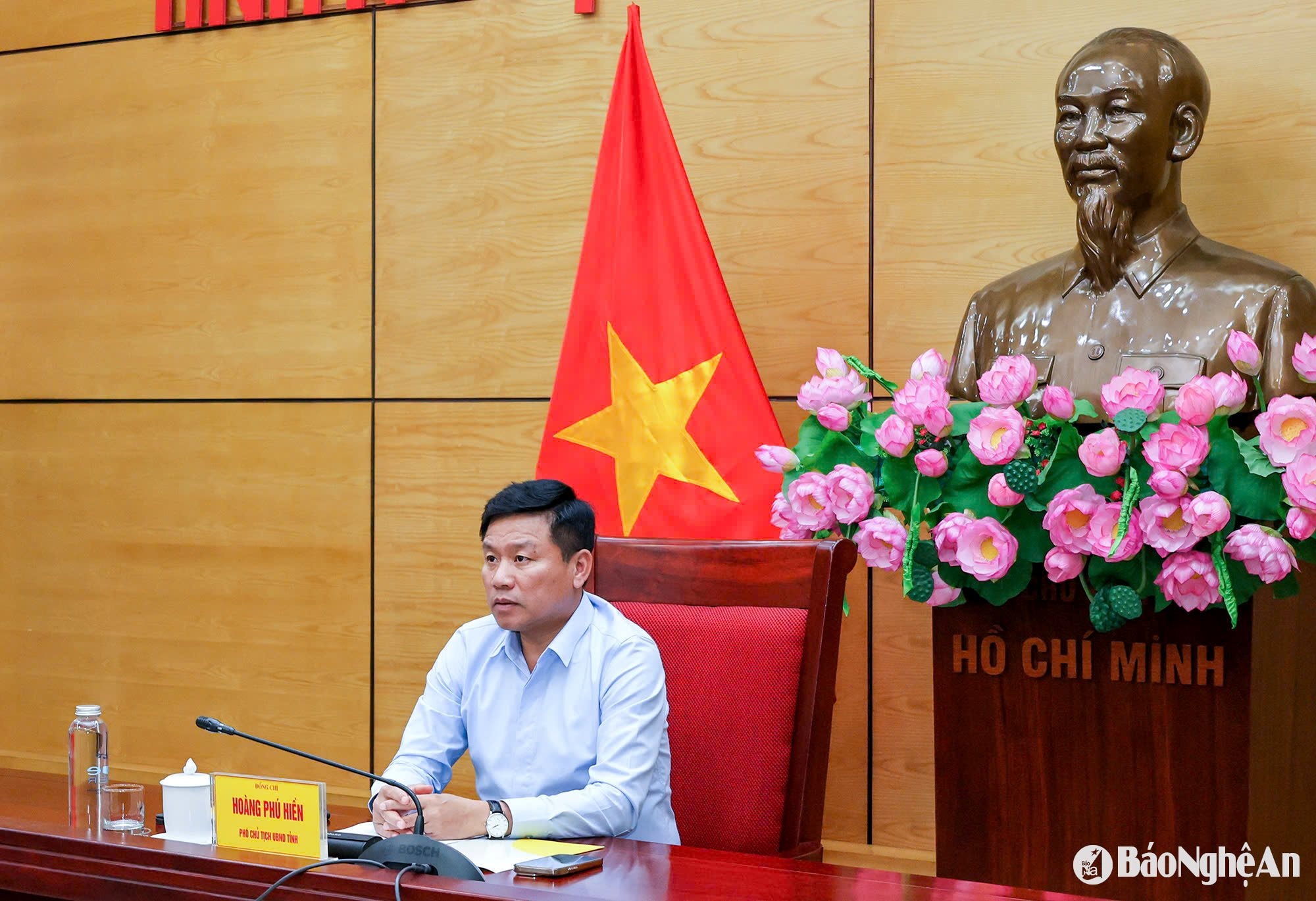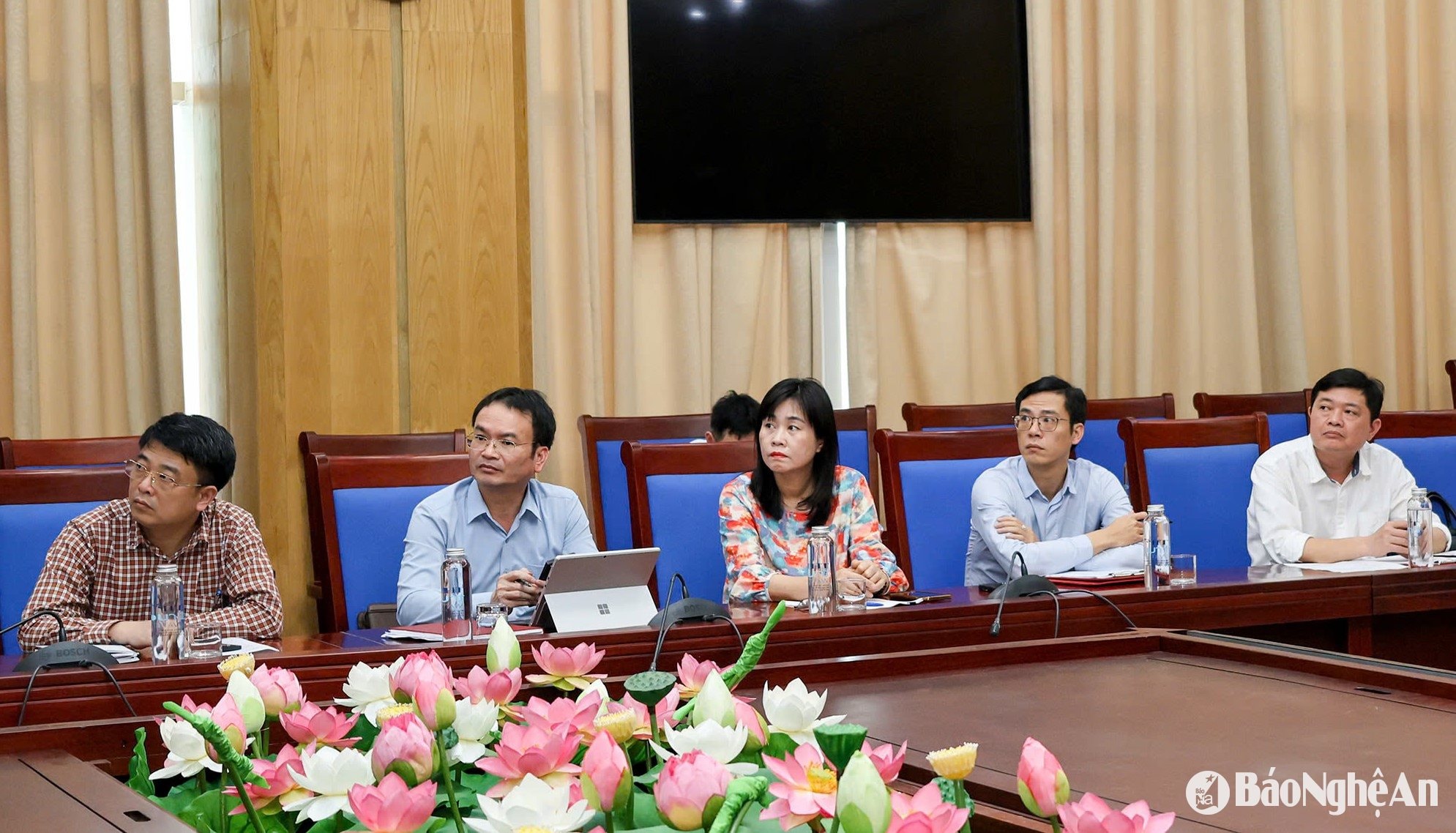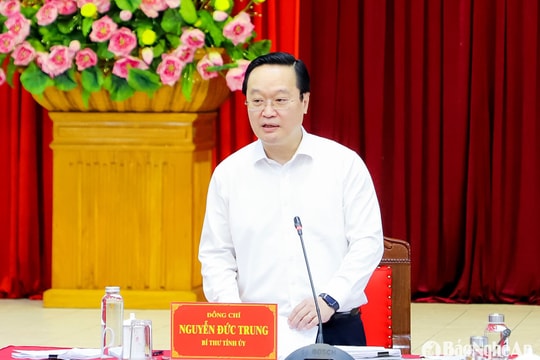Careful, cautious, and flexible in handling public assets when arranging and streamlining the apparatus.
On the afternoon of April 9, the Ministry of Finance held an online conference to implement the Conclusion of the Standing Committee of the Central Steering Committee on preventing and combating corruption, waste and negativity. The conference was chaired by Mr. Bui Van Khang - Deputy Minister of Finance.
At Nghe An bridge, comrade Hoang Phu Hien - Member of the Provincial Party Executive Committee, Vice Chairman of the Provincial People's Committee chaired. Attending were representatives of leaders of agencies, departments and branches.
.jpg)
Make the most of existing facilities
The conference focused on reviewing and handling public works and real estate when arranging and streamlining the apparatus and administrative units; reviewing projects, works, and headquarters under construction or with approved investment policies that are affected by the arrangement and streamlining of the apparatus and administrative units.
It is expected that the plan for the arrangement, reorganization, and handling of public assets when reorganizing administrative units will prioritize transferring headquarters and public service facilities at the district level (after abolishing the district level) to grassroots administrative units or other State agencies in need. Implement the exchange of headquarters and public service facilities between the provincial, district, commune levels, and central agencies to make the most of existing facilities.
Surplus headquarters and facilities will be handled according to legal regulations, with priority given to converting their functions into medical and educational facilities, or serving public purposes such as libraries, parks, culture, sports, etc.
For cars, machinery, equipment and other assets, the agency, organization or unit receiving the task will receive the corresponding assets to perform the task. Cars serving the general work of district-level units after the district level is removed will be allocated to grassroots administrative units (communes, wards, special zones). If not fully allocated, they will be handed over to the Department of Finance to allocate to other grassroots administrative units or handled according to regulations.
Regarding the roadmap, the Ministry of Finance submitted to the Prime Minister an adjustment of the time for conducting the general inventory of assets, requiring the synthesis results from ministries, central agencies and provincial People's Committees to be sent to the Ministry of Finance before May 10, 2025, and reported to the Prime Minister before May 30, 2025. Ministries and central agencies need to notify provincial People's Committees of redundant headquarters before April 30, 2025, and new administrative units must handle redundant assets within 5 years from the completion of the arrangement.

The review and arrangement of assets must be carried out with the principle of thoroughness and caution.
At the conference, ministries, branches and localities reported and contributed opinions on plans for arranging, organizing and handling public assets in the process of administrative unit arrangement.
According to statistics, Nghe An has 4,258 large-scale housing and land facilities that need to be rearranged, including 360 provincial-level facilities, 388 district-level facilities and 3,510 commune-level facilities.
In the process of reviewing, arranging, and handling real estate and construction projects affected by the arrangement and streamlining of the local administrative apparatus and units, there are still some difficulties and problems such as: Many real estate facilities lack legal documents (especially legal documents on land at commune-level units), and many cases have not been granted Land Use Right Certificates. Most of the purposes of use of the surplus real estate facilities after the arrangement and streamlining of the administrative apparatus and units are not consistent with the land use planning and construction planning approved by competent authorities.
Besides, Nghe An has diverse terrain, mountainous areas account for nearly 3/4 of the total area of the province, so the arrangement of the new headquarters must be carefully considered in terms of distance, traffic infrastructure and population density.
The nature, characteristics and scale of the old headquarters before the merger are not suitable with the nature, characteristics and scale of the headquarters of the new administrative unit because the new organizational structure and functions and tasks of the new administrative unit are much larger and different from before...

In his concluding remarks at the conference, Comrade Bui Van Khang - Deputy Minister of Finance, acknowledged and highly appreciated the results that ministries, branches and localities have achieved in the work of arranging public assets.
He emphasized that this is an extremely difficult and unprecedented task, involving the arrangement of large assets and the adjustment of ongoing public investment projects, including stopping, changing functions or changing investors.
Therefore, the review and arrangement of assets must be carried out with the principle of thoroughness, caution but also flexibility, because the current mechanism and policies are not yet complete. If the Law cannot be amended, it is necessary to have appropriate mechanisms and policies to ensure this process goes smoothly.
The Deputy Minister of Finance also requested ministries, branches and localities to closely coordinate with the General Statistics Office to accurately review data, in order to avoid loss and waste in the process of asset arrangement. He noted that in this process, there should be a focal agency to synthesize, coordinate and preserve assets, ensuring that no unexpected situations occur.
Receiving comments at the conference, the Deputy Minister of Finance assigned relevant units to study and amend laws such as the Budget Law and the Public Investment Law, in order to create a favorable legal corridor for the arrangement of public assets.
This is a difficult, complicated task that requires quick implementation, he emphasized: "We will have to "run and queue at the same time". Therefore, local leaders need to directly direct and carry out this task resolutely and effectively.






